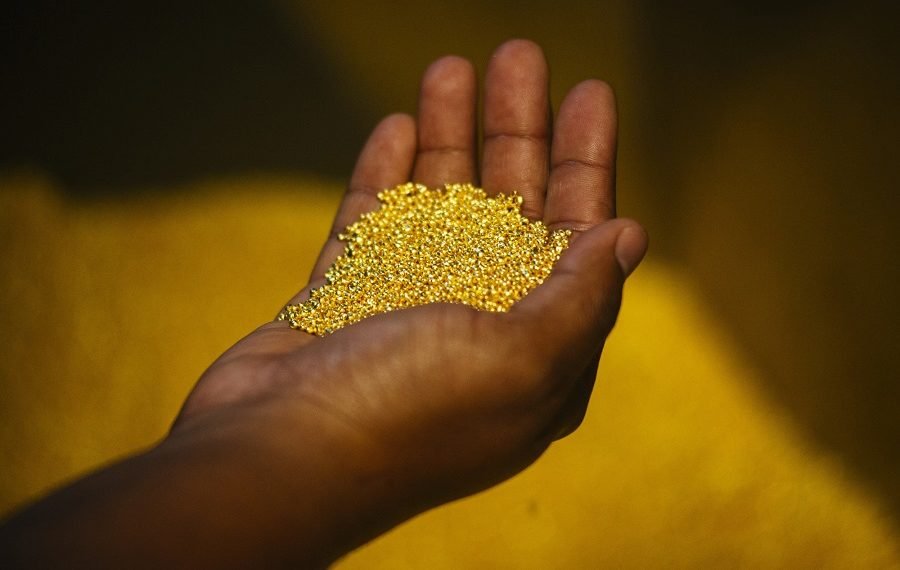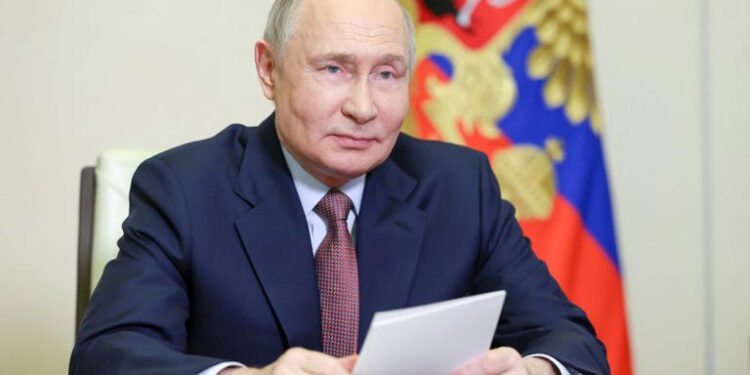Ghana has been mentioned as one of the few countries that is likely to gain an increase in commodity prices despite this trying time of the coronavirus pandemic.
According to a Global Emerging Market (EM) Economist, John Ashbourne, gold is the only commodity that has been projected to survive and make profits even post COVID. As Ghana is one of the few countries which produce gold for the world market, it is likely to reap about 20 per cent profit compared to last year.
In a presentation held on May 27, 2020, the EM Economist showed charts of various factors that could affect emerging markets.
He said, “the second factor which is likely to keep pressure on emerging markets, is commodity prices which we expect will stay low this year…the average of 2020 versus the average of 2019, the percentage change between those two figures…and you can see that it’s a fall across the board except for gold. So gold producers are lucky to have 20 per cent higher than they did last year. And that’s positive for a few countries, Ghana for instance.”
However, he indicates that the increase in gold patronage is “not a big factor compared to what’s happening to metal prices” as metal prices have plummeted alongside many other things as a result of the coronavirus.
The other commodities which he mentioned were grains index, copper, coal, iron and oil. It was illustrated that oil is the commodity with the highest decline with about 48 per cent towards the negative.

Highlighting other factors that affect emerging markets, emerging markets currencies selling off against the United States (US) dollar was one. Survey shows that, EM currencies will likely remain under slight downside pressure given several dynamics though market pressures have eased slightly. It stated some major EMs which sold off sharply and they were; Brazil, South Africa, Mexico, Russia and Turkey.
As many EMs will struggle to contain Covid-19, it is believed that a full recovery is almost impossible this year. Most currencies will probably end 2020 down by 5-10% against the US dollar.

Another factor which was highlighted while addressing the topic, Emerging Market Key Themes, was the external vulnerabilities of some countries. According to the report, heavier external liabilities such as foreign debt could drag the process of emerging markets. The higher the percentage of debt, the lower the progress of an emerging market. Also, the presence of foreign holdings – local currency bonds owned by non-resident investors – in a country’s market could drag the process.
The expansion of toolbox with quantitative easing (QE) programmes by EM policymakers could weaken emerging markets. Investopedia defines quantitative easing as a form of unconventional monetary policy in which a central bank purchases longer-term security from the open market in order to increase the money supply and encourage lending and investment.
Reports show that only few EMs have the ability to launch large fiscal stimulus plans similar to those seen in developed markets (DMs). Hence, there have been many EMs trying to turn their focus to monetary policy. Chile, Colombia, Hungary, Indonesia, Poland, Romania, South Africa and Turkey have launched their first ever quantitative easing (QE) programmes. According to Ashbourne, though markets have not yet responded negatively to QEs, significant longer-term risks like weaker monetary institutions are projected. He stated that excessive use of QE could lead to rising inflation and significant currency weakness.
Lastly, he highlighted that a fall in travel and tourism could take a toll on emerging markets. The advent of the novel coronavirus led to many countries closing borders and prevent foreigners from entering their countries as well as the personal decisions of individuals to pause travelling for the time being to observe social distancing. The report predicts that travel restrictions will weigh heavily on GDP growth, particularly for those open and travel-dependent economies such as Thailand, Philippines and Mexico.
Notwithstanding, there is a bright side to all of these. Ashbourne believes that exports in the Information Technology (IT) sector could prove a new source of growth.
“The opportunities go far beyond IT service exports and include business process outsourcing as well,” he said.
He further explained that, “this may accelerate the ‘unbundling’ of business processes and encourage firms to outsource more nonessential processes to third parties. This could open up a huge market, by allowing firms (and individuals) in EMs to compete for work that is currently done in big financial centres.”





















